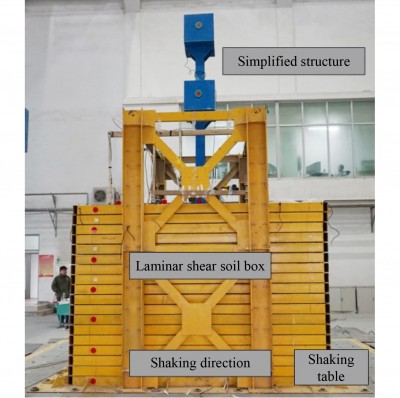U.S. gymnastics stars Simone Biles, Suni Lee, Jordan Chiles, and Jade Carey have been through it all.
They’ve supported each other in highs – like the Olympic Games Paris 2024, where Team USA took gold – and the lows – like the…

U.S. gymnastics stars Simone Biles, Suni Lee, Jordan Chiles, and Jade Carey have been through it all.
They’ve supported each other in highs – like the Olympic Games Paris 2024, where Team USA took gold – and the lows – like the…

In this China Monthly Tax Brief for September 2025, we highlight key taxation developments relevant to individuals and businesses.
As China continues to refine its tax and regulatory landscape to support high-quality development, September saw a series of important updates with implications for foreign-invested enterprises. From enhanced compliance requirements for internet platforms to targeted fiscal incentives in Shanghai and Hainan, the month’s developments reflect a clear policy direction: strengthening governance, supporting strategic industries, and improving the business environment for both domestic and international stakeholders.
This issue covers:
These changes offer both compliance challenges and strategic opportunities. Foreign investors are encouraged to stay informed and align their operations with evolving policy priorities to maximize benefits and mitigate risks.
On September 28, 2025, China’s State Taxation Administration (STA), Ministry of Industry and Information Technology (MIIT), and Cyberspace Administration (CAC) jointly issued Announcement No. 22. This announcement clarifies the administrative penalties for violations under the Regulations on Tax-Related Information Reporting by Internet Platform Enterprises (Order No. 810) and marks a significant step in strengthening tax oversight in the platform economy.
The announcement provides a compliance buffer for internet platforms. If a company violates Article 10 of the regulations but corrects the issue within the deadline set by tax authorities, no penalty will be imposed. This mechanism encourages proactive remediation and offers a chance to avoid sanctions.
The authorities have outlined specific behaviors that will be classified as “serious” if not corrected after receiving a rectification order. These include:
Platforms found to have committed serious violations may face suspension of business operations. During this period, the tax authorities will restrict the issuance of invoices, flag input invoices for risk, and publicly disclose the violations. These measures are designed to deter non-compliance and reinforce accountability.
Find Business Support
The announcement sends a clear signal that tax compliance in the platform economy is under intensified scrutiny. Platform enterprises must establish robust internal controls to ensure accurate and timely reporting of tax-related information. Particular attention should be paid to avoiding technical or operational practices that help merchants manipulate income structures, as this is now explicitly categorized as a serious offense. Moreover, any rectification notice issued by tax authorities must be addressed immediately and thoroughly to prevent escalation.
This development reflects China’s broader effort to align digital business practices with national tax governance objectives. Foreign-invested platforms and investors should ensure their China operations are equipped to meet these evolving regulatory expectations, especially in terms of internal compliance systems and risk management protocols.
To accelerate the development of its headquarters economy, Shanghai has revised its funding policy for multinational corporations. On August 27, 2025, the Shanghai Municipal Commission of Commerce and the Municipal Bureau of Finance jointly issued the updated Measures for the Administration of Development Funds for Regional Headquarters of Multinational Corporations (Hu Shang Gui [2025] No. 3). Effective from September 1, 2025, the new measures replace the 2024 version and will remain valid until August 31, 2030.
The revised measures expand the scope of fiscal support from corporate entities to specific projects, signaling a more flexible and pragmatic approach. While maintaining compliance and creditworthiness as prerequisites, the policy simplifies application requirements and introduces targeted incentives to encourage functional clustering and capability enhancement.
The new framework offers support across five categories: early-stage funding, capability enhancement rewards, functional rewards, innovation platform incentives, and capital increase bonuses.
| Support Category | Eligible Projects | Core Requirements | Support Amount |
| Early-stage support funding | Regional HQ or business division HQ | Paid-in capital ≥ US$30 million; ≥ 10 employees; manages at least one domestic or overseas entity across different countries/regions | RMB 5 million (disbursed over 3 years: 40%, 30%, 30%) |
| Global R&D center | ≥ 50 full-time R&D personnel | RMB 5 million (same disbursement schedule) | |
| Capability enhancement reward | Asia-Pacific or higher-level HQ or business division HQ | Manages ≥ 3 overseas entities; performs ≥ 2 core functions (e.g. R&D, treasury, investment, procurement, supply chain, shared services); paid-in capital ≥ US$2 million; ≥ 50 employees; senior executive stationed in Shanghai | RMB 3 million (one-time reward) |
| Regional HQ or business division HQ upgraded to global division HQ | Annual revenue ≥ RMB 1 billion, accounting for ≥ 10% of global division revenue; paid-in capital ≥ US$30 million; ≥ 80 global business staff; senior executive stationed in Shanghai | RMB 10 million (one-time reward) | |
| Functional reward | Regional HQ or business division HQ with new R&D function | Average annual R&D investment ≥ US$4 million over past 2 years; ≥ 40 full-time R&D staff; holds authorized Chinese invention patents | RMB 3 million (one-time reward) |
| New treasury function | Operational for ≥ 1 year; annual cross-border cash pool flow ≥ RMB 3.5 billion with positive net movement | RMB 3 million (one-time reward) | |
| New procurement/distribution function | Paid-in capital ≥ US$2 million; annual sales ≥ RMB 1 billion | RMB 5 million (disbursed over 3 years: 40%, 30%, 30%) | |
| Innovation platform reward | Open innovation platform | ≥ 5 full-time staff in tech, operations, or management; ≥ 5 successfully signed incubation projects | RMB 3 million (one-time reward) |
| Capital increase reward | Investment in encouraged industrial projects via capital increase | Annual new actual foreign investment ≥ US$30 million | RMB 2 million (one-time reward) |
Applicants must have operated continuously for at least one year, maintain good credit standing, and submit foreign investment enterprise reports as required. Duplicate applications for similar funding are prohibited, and applicants are responsible for the accuracy and completeness of their submissions.
Find Business Support

The revised policy reflects Shanghai’s ambition to attract and retain high-value multinational operations. Enterprises are encouraged to align their strategic planning with the new funding criteria, assess their current headquarters classification, and explore opportunities to upgrade to global status. Given the emphasis on core functions such as R&D, treasury, and procurement, companies should evaluate their operational strengths and consider targeted enhancements to unlock policy benefits.
Early preparation is key. Eligible firms should study the application guidelines, understand the documentation requirements, and plan the use of funds in line with fiscal performance standards to maximize impact.
Hainan Free Trade Port (FTP) has unveiled a series of tax and regulatory measures aimed at enhancing its appeal to high-end talent, creative industries, and cross-border e-commerce enterprises. These initiatives reflect the province’s broader strategy to build a globally competitive business environment under the Hainan FTP framework.
Effective January 1, 2025, Hainan refined its preferential individual income tax (IIT) treatment to qualified high-end and urgently needed professionals working in the FTP. Under Announcement No. 24, individuals whose effective tax burden exceeds 15 percent will be exempted from the excess portion, provided their income is sourced from and taxed in Hainan.
The policy covers comprehensive income (such as wages, royalties, and labor services), business income, and government-recognized talent subsidies. To qualify, individuals must reside in Hainan for at least 183 days annually, with flexible provisions for those in industries like aviation and offshore energy. Eligibility is determined through annual talent rosters compiled by HR and tax authorities, with additional application channels for special sectors. Compliance is closely monitored, and false declarations may result in disqualification and penalties.
In a complementary move to reduce business costs, the Hainan provincial government announced that, starting October 1, 2025, advertising and entertainment service providers in the FTP will be exempt from paying the local portion of the cultural development fee. This exemption does not apply to Sansha City, which will continue to follow the existing policy of halved fees for both local and central portions.
The exemption applies to fees incurred from October 1 onward and is currently open-ended. For services with mixed investment structures, the local portion is fully exempt, while the central portion is subject to a 50 percent reduction under national rules (Caishui [2025] No.7).
Find Business Support

On September 22, 2025, Haikou Customs released implementation guidelines for the duty-free policy on processing value-added goods in the FTP. Once the customs closure operation officially begins, enterprises using imported materials—including zero-tariff and bonded goods—can apply for duty exemption on the value-added portion of processed products.
Enterprises must first file with the Hainan Department of Commerce via the China (Hainan) International Trade “Single Window.” After approval, they must declare the processing value-added before transporting finished goods to the Chinese mainland. This policy is expected to significantly reduce costs for manufacturers and enhance the competitiveness of Hainan-based supply chains.
On September 7, 2025, the Hainan Provincial Government issued an implementation plan for the China (Hainan) Comprehensive Pilot Zone for Cross-Border E-Commerce. Key highlights include:
These measures aim to streamline operations, reduce tax burdens, and enhance financial flexibility for cross-border e-commerce businesses operating within the pilot zone.
Together, these policies signal Hainan’s commitment to building a dynamic, talent-driven, and trade-friendly economy. Foreign investors and enterprises operating in the FTP should assess their eligibility for these incentives and align their operations with Hainan’s evolving regulatory framework to maximize strategic and financial benefits.
Read also: Hainan Free Trade Port: Tax, Customs, and Industry Incentives for Foreign Investors
In a significant step toward standardizing sustainability reporting, China’s Ministry of Finance, in collaboration with multiple government agencies, released the Application Guide for the Corporate Sustainability Disclosure Standards – Basic Standards (Trial) in September 2025. This guide refines and operationalizes the Basic Standards issued in November 2024 and is currently voluntary for enterprises to adopt.
The guide provides a structured methodology for enterprises to identify the scope of their value chains, assess the materiality of sustainability-related information, and link financial and non-financial data. It also outlines how to disclose the current and expected financial impacts of sustainability risks and opportunities. These disclosures aim to help investors, creditors, and other stakeholders better evaluate a company’s long-term value and risk profile.
Key components of the guide include:
The release of the application guide marks a transition from framework-building to implementation in China’s sustainability disclosure regime. It reflects a growing emphasis on ESG integration, transparency, and long-term value creation. FIEs operating in China should consider aligning their internal reporting systems with the guide’s principles to enhance stakeholder trust and prepare for potential future mandates.
Find Business Support

About Us
China Briefing is one of five regional Asia Briefing publications. It is supported by Dezan Shira & Associates, a pan-Asia, multi-disciplinary professional services firm that assists foreign investors throughout Asia, including through offices in Beijing, Tianjin, Dalian, Qingdao, Shanghai, Hangzhou, Ningbo, Suzhou, Guangzhou, Haikou, Zhongshan, Shenzhen, and Hong Kong in China. Dezan Shira & Associates also maintains offices or has alliance partners assisting foreign investors in Vietnam, Indonesia, Singapore, India, Malaysia, Mongolia, Dubai (UAE), Japan, South Korea, Nepal, The Philippines, Sri Lanka, Thailand, Italy, Germany, Bangladesh, Australia, United States, and United Kingdom and Ireland.
For a complimentary subscription to China Briefing’s content products, please click here. For support with establishing a business in China or for assistance in analyzing and entering markets, please contact the firm at china@dezshira.com or visit our website at www.dezshira.com.

Pile foundations are widely used in supporting bridges, high-rise buildings, and offshore structures due to their strong adaptability to complex geological conditions and excellent load-bearing performance. However,…

This wide view of Copernicus Sentinel-3 shows Cyclone Errol heading towards the coast of Western Australia.
Zoom in to explore this image at its full resolution.
Errol was a powerful tropical cyclone, which formed as a tropical storm at…

You can always be judged by your scars. This is the idea that sums up one of the new breakthroughs in basic and biomedical research published today in the journal Science, an achievement of the Spanish National Cancer Research Centre…

There may be a way to protect brain energy to preserve cognition — and the secret could lie on your plate. Think fish and seafood, meat, non-starchy vegetables, berries, nuts, seeds, eggs and even high-fat dairy products.
University of…

Aryna Sabalenka hits a return during the women’s singles quarterfinal match between Elena Rybakina of Kazakhstan and Aryna Sabalenka of Belarus at the 2025 Wuhan Open tennis tournament in Wuhan, central China’s Hubei Province, Oct. 10, 2025….

Microsoft announced the general availability of Windows Backup for Organizations this week. This new business backup feature simplifies the management of Windows devices and accelerates the transition to Windows 11.
The…

Indonesia has decided not to issue visas to Israeli athletes set to compete at the upcoming World Artistic Gymnastics Championships in Jakarta, following widespread public opposition and the country’s long-standing support for…